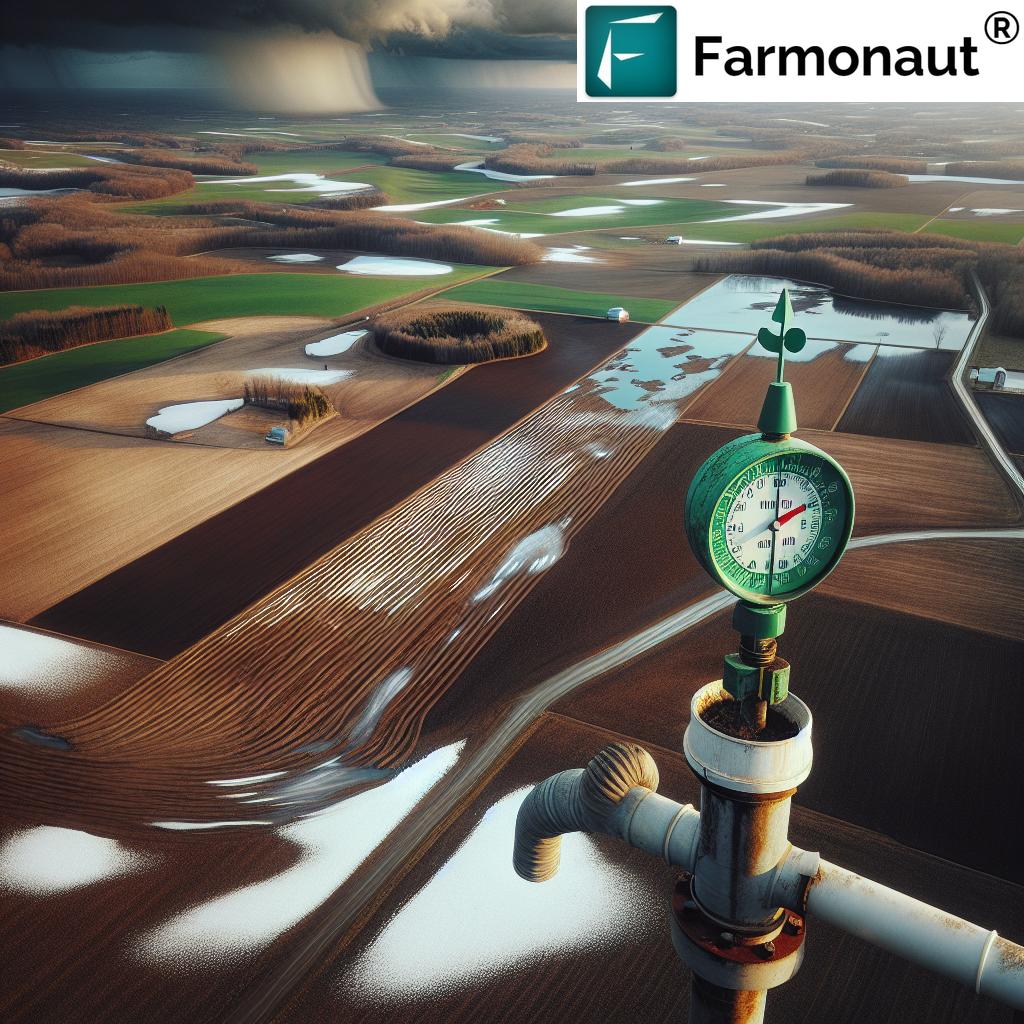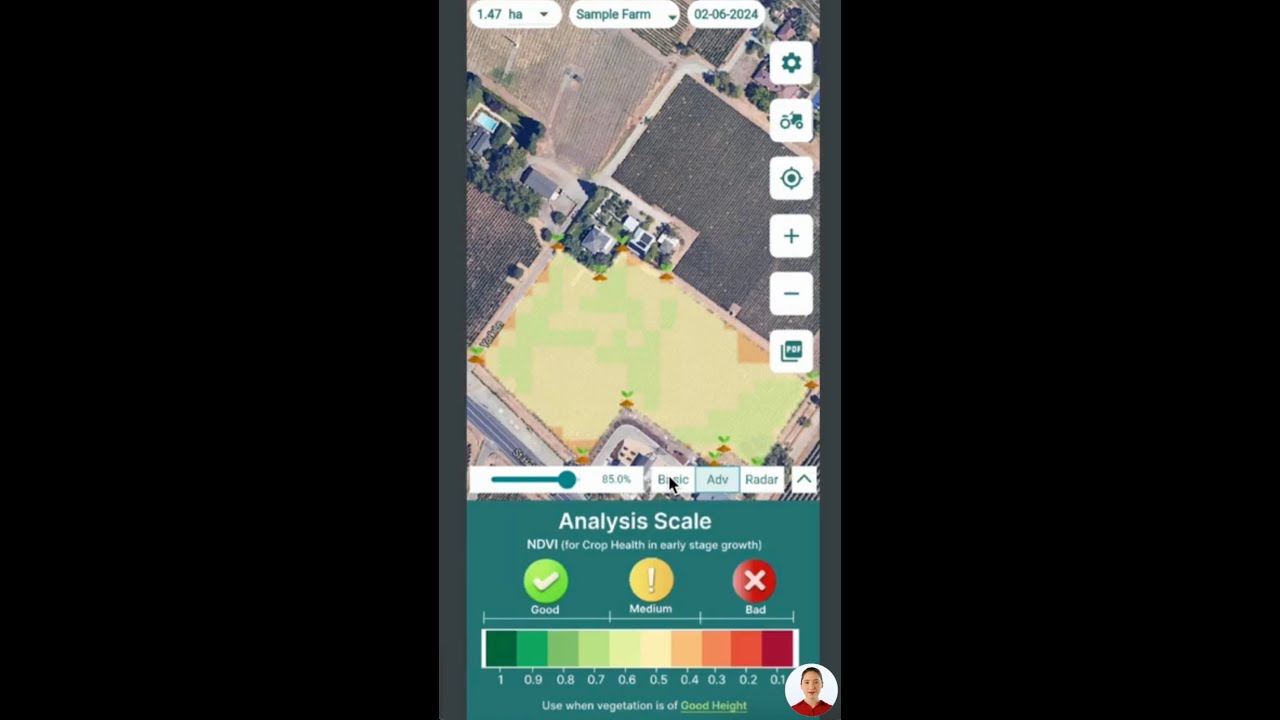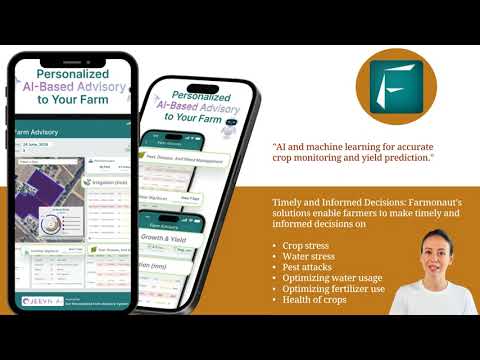Spring Planting Season: Warren County’s Dry Winter and Soil Conditions for April
“Warren County received only 8 inches of snow this winter, leading to dry soil conditions for spring planting.”
Greetings from Warren County! As we transition into the spring planting season, we find ourselves facing unique challenges and opportunities shaped by the dry winter conditions and cool spring temperatures. Our community of farmers and agricultural enthusiasts has been closely monitoring the evolving situation, and we’re excited to share our insights with you.
The Impact of a Dry Winter
This winter has been notably dry in Warren County, with only 8 inches of snow accumulation throughout the entire season. This stark contrast to our usual snowfall has left many of us concerned about soil moisture levels as we approach the critical spring planting period. The lack of snow cover has not only affected our soil conditions but also raised questions about the overall impact on our local ecosystem and agricultural practices.

However, it’s not all doom and gloom. We’ve seen some promising developments in recent weeks that have given us hope for a successful planting season. Let’s dive into the details of our current conditions and what they mean for our farming community.
Recent Rainfall: A Welcome Relief
The last week of March and early April brought us some much-needed precipitation. We received approximately 2 inches of rain during this period, providing some relief to our parched earth. This rainfall has been crucial in replenishing soil moisture levels, which had been depleted due to the dry winter conditions.
While this rainfall has been beneficial, it’s important to note that we’re still not out of the woods. The soil moisture levels are still below optimal ranges, and we’ll need to continue monitoring the situation closely as we move further into the planting season.
Soil Temperature: A Positive Sign for Planting
“Soil temperatures in Warren County have reached 55 degrees, creating favorable conditions for spring crop planting.”
One of the most encouraging developments we’ve observed is the rise in soil temperature. As of early April, our soil temperature has reached 55 degrees Fahrenheit, which is excellent news for spring planting. This temperature is within the optimal range for many of our staple crops, creating favorable conditions for seed germination and early plant growth.
For farmers looking to make data-driven decisions about planting times and crop selection, tools like Farmonaut’s satellite-based farm management solutions can provide valuable insights. These advanced technologies allow us to monitor soil conditions, including temperature and moisture levels, with unprecedented accuracy.
Cool Spring Temperatures: A Double-Edged Sword
While our soil temperatures are favorable, we’ve been experiencing cooler than average temperatures in early April. This has had a noticeable impact on our local vegetation, particularly the grass, which is turning green very slowly. The slower greening process could potentially affect grazing schedules for livestock farmers and impact early season forage availability.
However, the cooler temperatures also have some benefits. They can help conserve soil moisture by reducing evaporation rates, which is particularly important given our dry winter. Additionally, some crops actually prefer cooler spring temperatures for optimal growth.
Current Planting Activities
Despite the challenges posed by the dry winter and cool spring, many farmers in Warren County have begun their planting activities. We observed some planters rolling out as early as last Thursday, taking advantage of the favorable soil temperatures and improved moisture levels from the recent rainfall.
However, the situation remains dynamic. The showers we received on April 10th have temporarily slowed down planting operations. This pause allows farmers to reassess their strategies and ensure they’re making the best decisions for their crops based on the latest soil and weather conditions.

Soil Conditions: A Closer Look
Let’s take a more detailed look at our current soil conditions and how they compare to optimal ranges for spring planting:
| Factor | Current Status | Optimal Range | Impact on Planting |
|---|---|---|---|
| Soil Moisture | Below average due to dry winter | 50-75% field capacity | May require additional irrigation for optimal germination |
| Soil Temperature | 55°F | 50-65°F for most spring crops | Favorable for planting most spring crops |
| Snowfall Accumulation | 8 inches (season total) | Varies by region | Lower than average, contributing to drier soil conditions |
| Recent Rainfall | 2 inches in late March/early April | 1-2 inches per week during growing season | Improved short-term soil moisture, but continued monitoring needed |
| Grass Greening | Slow due to cool temperatures | Typically greens when soil temps reach 50-65°F | May delay grazing for livestock farmers |
This table provides a quick overview of our current conditions and how they might affect planting decisions. Farmers can use this information to adjust their strategies accordingly, whether that means altering planting dates, selecting different crop varieties, or implementing additional irrigation measures.
Adapting to Changing Conditions
In the face of these unique weather patterns, Warren County farmers are demonstrating their resilience and adaptability. Here are some strategies our agricultural community is employing to ensure a successful planting season:
- Precision Agriculture: Many farmers are turning to advanced technologies like Farmonaut’s crop plantation and forest advisory services to make data-driven decisions about planting times, crop selection, and resource management.
- Water Conservation: Given the dry winter, water conservation is a top priority. Farmers are implementing efficient irrigation systems and exploring drought-resistant crop varieties.
- Soil Health Management: To improve water retention and overall soil health, many farmers are focusing on practices like cover cropping, reduced tillage, and organic matter incorporation.
- Diversification: Some farmers are considering diversifying their crop selection to spread risk and take advantage of crops that may perform better under current conditions.
- Monitoring and Forecasting: Staying informed about short-term weather forecasts and long-term climate trends is crucial. Tools like Farmonaut’s satellite monitoring can provide valuable insights for decision-making.
The Role of Technology in Modern Farming
As we navigate these challenging conditions, technology is playing an increasingly important role in our farming practices. Satellite-based farm management solutions, like those offered by Farmonaut, are revolutionizing the way we approach agriculture.
These advanced tools allow farmers to:
- Monitor crop health in real-time
- Track soil moisture levels across large areas
- Receive personalized recommendations based on AI analysis
- Optimize resource use, including water and fertilizers
- Predict potential issues before they become major problems
By leveraging these technologies, farmers can make more informed decisions, adapt quickly to changing conditions, and ultimately improve their yields while reducing environmental impact.
Looking Ahead: Weather Forecasts and Long-Term Projections
As we move further into the spring planting season, it’s crucial to keep an eye on both short-term weather forecasts and long-term climate projections. While we can’t predict the future with certainty, these tools can help us prepare for potential challenges and opportunities.
Current forecasts suggest that we may continue to experience slightly cooler than average temperatures in the coming weeks. This could further slow the greening process of our grass and potentially delay the growth of early-planted crops. However, it may also provide an extended window for planting cool-season crops.
Long-term climate projections for our region indicate a trend towards more variable weather patterns, including the possibility of more frequent dry spells interspersed with intense rainfall events. This underscores the importance of implementing resilient farming practices and investing in technologies that can help us adapt to these changing conditions.
Community Support and Resources
In Warren County, we believe in the power of community support. As we face these unique challenges together, there are several resources available to our farming community:
- Local Extension Office: Our county extension office provides valuable information on crop selection, pest management, and soil health tailored to our local conditions.
- Farmer’s Cooperatives: These organizations offer bulk purchasing power for inputs and provide a forum for sharing knowledge and best practices.
- Agricultural Technology Providers: Companies like Farmonaut offer cutting-edge tools to help farmers optimize their operations. Their large-scale farm management solutions can be particularly beneficial for commercial operations in our area.
- Financial Services: Local banks and credit unions familiar with agricultural lending can provide financial support for implementing new technologies or weathering challenging seasons. Farmonaut’s crop loan and insurance verification services can streamline this process.
Sustainability and Environmental Considerations
As we adapt to these changing conditions, it’s crucial that we keep sustainability at the forefront of our farming practices. The dry winter and variable spring conditions we’re experiencing are stark reminders of the importance of environmental stewardship in agriculture.
Here are some ways Warren County farmers are promoting sustainability:
- Water Conservation: Implementing efficient irrigation systems and exploring drought-resistant crop varieties to reduce water usage.
- Soil Health: Focusing on practices like cover cropping, reduced tillage, and organic matter incorporation to improve soil structure and water retention.
- Precision Agriculture: Using technologies like Farmonaut’s satellite monitoring to optimize resource use and reduce waste.
- Biodiversity: Planting diverse crop rotations and maintaining natural habitats to support beneficial insects and wildlife.
- Carbon Footprint Reduction: Implementing practices to reduce greenhouse gas emissions and sequester carbon in the soil. Farmonaut’s carbon footprinting tools can help farmers track and reduce their environmental impact.
By adopting these sustainable practices, we’re not only improving our resilience to challenging weather conditions but also contributing to the long-term health of our local ecosystem and the global environment.
The Importance of Data in Modern Farming
In today’s rapidly changing agricultural landscape, data has become an invaluable tool for farmers. The ability to collect, analyze, and act on precise information about our fields, crops, and local conditions can make the difference between a successful harvest and a disappointing yield.
Farmonaut’s suite of tools exemplifies the power of data in modern farming. Their satellite-based monitoring systems provide real-time insights into crop health, soil moisture, and other critical factors. This allows farmers to:
- Detect potential issues early, before they become visible to the naked eye
- Make informed decisions about irrigation, fertilization, and pest control
- Optimize resource use, reducing waste and environmental impact
- Track crop progress throughout the growing season
- Plan harvests more effectively based on crop maturity data
For those interested in leveraging these advanced technologies, Farmonaut offers several ways to access their services:
For developers and businesses looking to integrate Farmonaut’s data into their own systems, they also offer an API with comprehensive documentation.
Preparing for Future Seasons
While we’re focused on the current spring planting season, it’s never too early to start thinking about future seasons. The lessons we learn from this year’s unique conditions can help us better prepare for the challenges and opportunities that lie ahead.
Here are some steps Warren County farmers are taking to prepare for future seasons:
- Investing in Technology: Many farmers are exploring new technologies, like Farmonaut’s satellite monitoring systems, to improve their decision-making capabilities.
- Improving Soil Health: Long-term soil health strategies, such as cover cropping and reduced tillage, can improve resilience to both dry and wet conditions.
- Diversifying Crops: Some farmers are considering adding new crop varieties that may be better suited to changing climate conditions.
- Water Management: Investing in efficient irrigation systems and water storage solutions can help mitigate the impact of future dry spells.
- Continuous Learning: Staying informed about the latest agricultural research and best practices is crucial for adapting to changing conditions.
Conclusion: Embracing Change and Innovation
As we navigate the challenges of this unique spring planting season in Warren County, it’s clear that adaptability and innovation are key to success in modern agriculture. The dry winter and cool spring temperatures we’ve experienced have presented challenges, but they’ve also spurred our farming community to explore new techniques and technologies.
From leveraging advanced satellite monitoring systems to implementing sustainable farming practices, Warren County farmers are demonstrating their resilience and commitment to producing high-quality crops while preserving our local environment.
As we move forward, let’s continue to support each other, share knowledge, and embrace the innovations that will help us thrive in an ever-changing agricultural landscape. Together, we can ensure a prosperous and sustainable future for farming in Warren County.
FAQs
- How has the dry winter affected soil conditions in Warren County?
The dry winter, with only 8 inches of snow accumulation, has led to lower than average soil moisture levels. This may require additional irrigation for optimal crop germination and growth. - What is the current soil temperature for planting in Warren County?
The soil temperature has reached 55 degrees Fahrenheit, which is favorable for planting most spring crops. - How are farmers adapting to the cool spring temperatures?
Farmers are adjusting planting schedules, selecting appropriate crop varieties, and using technologies like satellite monitoring to make informed decisions. - What role does technology play in modern farming in Warren County?
Technologies like Farmonaut’s satellite-based farm management solutions are helping farmers monitor crop health, optimize resource use, and make data-driven decisions. - How are Warren County farmers promoting sustainability in their practices?
Farmers are implementing water conservation techniques, focusing on soil health, using precision agriculture, promoting biodiversity, and working to reduce their carbon footprint.
Earn With Farmonaut: Affiliate Program
Earn 20% recurring commission with Farmonaut’s affiliate program by sharing your promo code and helping farmers save 10%. Onboard 10 Elite farmers monthly to earn a minimum of $148,000 annually—start now and grow your income!
Farmonaut Subscriptions




















